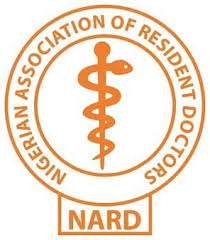The nursing profession, which provides the majority of care to patients with tuberculosis (TB), was represented by the International Council of Nurses (ICN) at the first WHO Global Ministerial Conference on ending TB in the Sustainable Development Era held in Moscow on 16-17 November 2017. Professor Thomas Kearns, ICN’s Interim Chief Executive Officer and Dr Carrie Tudor, Director of the ICN TB/MDR-TB project, joined Vladimir Putin, President of the Russian Federation; Dr Tedros Adhanom Ghebreyesus, Director-General of the World Health Organization (WHO); Amina J Mohammed, United Nations Deputy Secretary General; and 14 country delegations, including 75 Ministers, and over 1000 participants, including UN leaders, representatives of civil society, the private sector, academia and development agencies.
Hosted by the Ministry of Health of the Russian Federation, the Global Ministerial Conference resulted in the Moscow Declaration to End TB which aims to accelerate country implementation of the WHO End TB Strategy in order to reach the End TB targets set by the World Health Assembly and the United Nations (UN) Sustainable Development Goals (SDGs). The Moscow Declaration to End TB calls for increased funding and multisectoral commitment to End TB. “Nurses play a crucial role in improving TB case detection, ensuring patients are on appropriate treatment regimen. They are central in providing person-centred ongoing care and support to patients and improving care outcomes”, said Professor Thomas Kearns. “But in order to do so, nurses must have a voice in local, national and international planning and decision-making for coherent and effective service delivery.
ICN is proud to deliver that voice at this high-level meeting.” The recent release of the WHO’s 2017 Global Tuberculosis Report showed that global efforts to combat TB have saved an estimated 53 million lives since 2000 and reduced the TB mortality rate by 37%. But, according to the WHO, in 2016, there were an estimated 10.4 million new TB cases worldwide, 10% of which were people living with HIV. An estimated 1.7 million people died from TB, a curable disease, including nearly 400 000 people who were coinfected with HIV.
“Globally nurses make up the largest cadre of health care professionals and are key to the treatment and prevention of TB,” said Carrie Tudor. “In some parts of the world, a patient with TB will never see a doctor – all care is provided by a nurse from diagnosis to treatment completion. There is no doubt that we will not reach global targets to end TB without investment in the nursing profession and the direct involvement of nurses in policy making and implementation.”
About the ICN TB/MDR-TB Project
The ICN-Lilly TB/MDR-TB Project is working to strengthen the global nursing capacity in the prevention, detection, care and treatment of TB and M/XDR-TB through a Training for Transformation (TFT) initiative. The initiative trains experienced nurses working mainly in the TB and HIV fields, who then cascade information to their colleagues in local health care facilities as well as in the communities they serve. The TFT courses are run in countries with a high burden of TB and MDR-TB where ICN has a strong working relationship with the national nurses association.
Using this approach ICN has prepared more than 2,200 nurses in 17 highburden countries. These nurses have in turn rolled out the training to over 166,125 nurses, allied health workers, patients and community members/general public. The ICN TB Project currently is working in countries greatly affected by MDR-TB including China, the Russian Federation as well as six other countries in sub-Saharan Africa (Ethiopia, Lesotho, Malawi, Swaziland, Uganda and Zambia). Not only do the nurses trained through the TFT courses train other nurses, health care professionals and members of their communities, they also change their practice and improve the care and services provided to patients through a person-centred approach as well as improve infection prevention and control in their work places to protect health care workers, patients and visitors.
The ICN training provides much needed knowledge on all aspects of TB/MDR-TB but, just as importantly, it empowers and gives the nurses the confidence to improve their practice, to negotiate with colleagues to make improvements such as changing infection control practices through the procurement of N95 respirators for staff or the construction of sputum booths. The nurses are encouraged to assess their current practices and environment against best practices in TB care and develop plans to address the identified gaps. ICN, working within the Lilly MDR-TB Partnership is committed to mobilising and strengthening nursing as the key, practical on the ground response to address the challenges, the suffering and the spread of TB.
The ICN TB Project is supported by a United Way Worldwide grant made possible by the Lilly Foundation on behalf of the Lilly MDR-TB Partnership.
ABUJA: Training Schedule for Basic Life Support BLS, Pediatric Advanced Life Support (PALS), Advanced Cardiovascular Life Support ACLS, First Aid, CPR, AED
PORTHARCOURT: Training Schedule for Basic Life Support BLS, Pediatric Advanced Life Support (PALS), Advanced Cardiovascular Life Support ACLS, First Aid, CPR, AED
LAGOS: Training Schedule for Basic Life Support BLS, Pediatric Advanced Life Support (PALS), Advanced Cardiovascular Life Support ACLS, First Aid, CPR, AED




